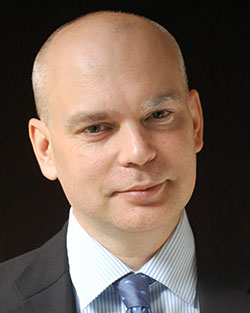Alumni Profiles
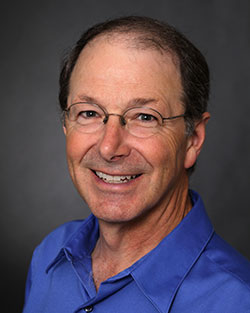
Rick Rashid MA '77, PhD '80 – On tackling new frontiers
“If you told me 30 years ago that the code I was writing would eventually be running in over 100 million cell phones, I would have had to inquire what a “cell phone” was.”
Rick Rashid came to the fledgling Department of Computer Science at Rochester in the mid 1970s with the first class of PhDs. The department was just getting started, with no computing equipment, only five young faculty and a newly established PhD curriculum. He was then recruited to head Microsoft Research in 1991 after a faculty stint at CMU. In each of these situations, Rick enjoyed the creative freedom that comes with designing and building a working organization from back-of-the-napkin to reality. Rick retired from Microsoft Research and its various global operations in 2016 and is now a Researcher Emeritus.

Daniel Russell PhD '84 – Tech lead for search quality and user happiness at Google on his career in HCI:
“The moment when I converted almost completely over to HCI was when I realized it really didn’t matter how great, smart, or perfect the back-end planner was—if the UI didn’t communicate what the human needed to know, it was so much computational junk.”
Haim Bodek BS '95 – An algorithmic trading whistle blower
“This year I participated in another successful whistleblower action against NYSE which resulted in a $14mm fine for impermissible order types.”
Known as a whistleblower who brought attention to several questionable practices of high-frequency traders and trading venues, Haim Bodek is generally credited with unleashing the so-called “order type controversy,” which focuses on abusive practices relating to complex nontransparent order types. Mr. Bodek is the founder of Decimus Capital Markets, LLC.
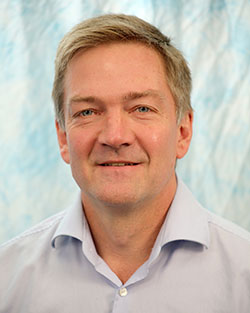
Jeff Schneider PhD '95 – Developing learning algorithms that learn as well as humanity
“For a long time I wanted to develop learning algorithms that would learn as well as a human. Now I want to develop learning algorithms that learn as well as humanity—that’s what science is.”
Jeff had been working on the Uber self-driving car in Pittsburgh. That effort still continues and they are making great progress, but he has recently returned to his research faculty position at CMU. His research focus is machine learning and data mining.
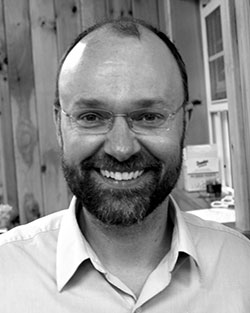
Andrew McCallum PhD '96 – On the importance of an advisor’s role…
“I try to lead my own students by inspiration. I certainly guide with a light touch. I make suggestions for broad directions or certain technical approaches, but the students make their own choices. I really see my advisees as additional children—my academic offspring. There are a lot of parallels: they both need nurturing and freedom in careful measures on just the right schedules, which can often be hard to discern.”
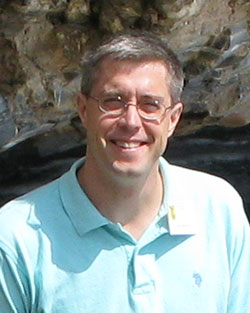
Bob Wisniewski PhD '96 – On what inspired his career in computer systems and high performance computing:
“Growing up, I was always fascinated by the internals of calculators. I would take them apart and examine the green circuit boards and wonder how the wires and chips could produce the computation results. As personal computers developed, this interest grew into wanting to understand them, and from there, wanting to be able to understand and program supercomputers.”

Galen Hunt PhD '98 – On longevity at Microsoft
“I’ve been at Microsoft 22 years. I jokingly tell people that means I’ve either got true grit or a complete lack of imagination. The truth is that I’ve stayed at Microsoft because I’ve had unending opportunities to grow while simultaneously building social capital with great colleagues. My wife has also been very tolerant to let me stay in one place that whole time as well.”
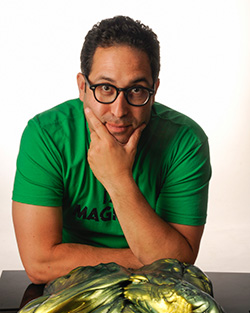
Aaron Muderick BS '98 – On creating a Putty Empire
Aaron Muderick left the world of software consulting after becoming disenchanted and began his own company producing Crazy Aaron’s Thinking Putty. He has watched as his business has grown over the 20 years since inception. His biggest challenge was having absolutely no idea how to run a business, handle payroll, taxes, etc.
“My Comp Sci training was very helpful in breaking down a problem into pieces and being very meticulous about writing the program that would solve each piece.” “If you are the kind of person who likes to be really busy, every day working a checklist of must-do tasks, and knowing that the list will be longer the next day, you might be cut out to be an entrepreneur. However, if all that pressure combined with working nights and weekends sounds like a panic attack, I would suggest against it.”
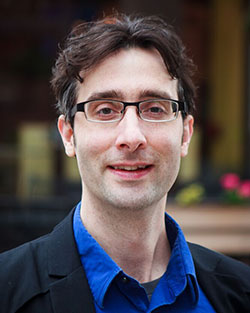
Shawn Hershey BA '99 – From trumpet to tech
Shawn Hershey graduated from URCS in 1999 with a BA in Computer Science, after being forced to abandon his studies in performance trumpet at the Eastman School of Music due to injury. “(Computer Science) felt more like music than other courses that I had taken. Something about the hands-on nature of it and feedback that compilers and programs give me when developing feels similar.” He now works at Google Research in New York City and enjoys playing trumpet in a swing band and teaching and performing the Lindy hop.
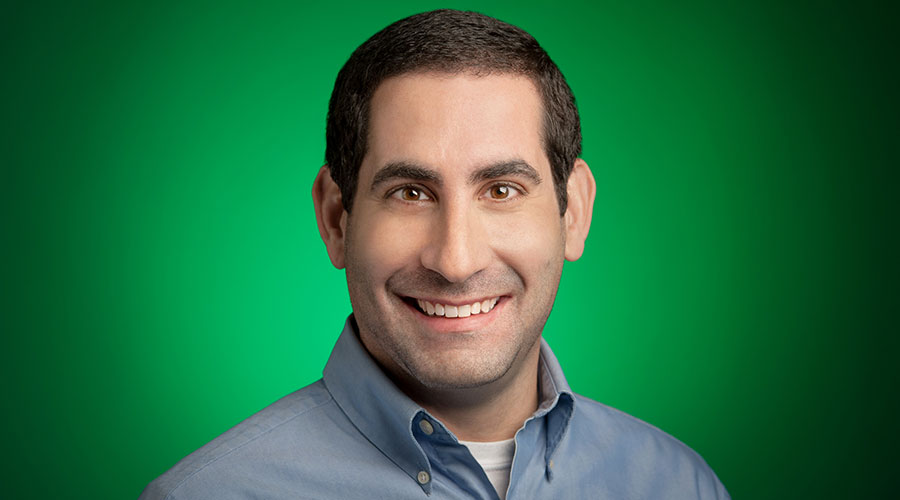
Daniel Berlin BS '00 – Why Computer Science is good preparation for law school
“Having learned in my CS program how to apply unrelated or slightly different algorithms to new tasks, the task of applying normally rigid laws and cases to unrelated or slightly different situations was a walk in the park.”
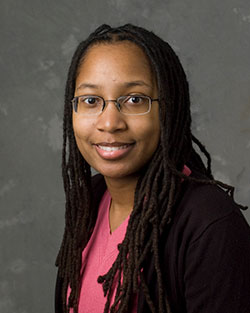
Brandeis Hill-Marshall BS '00 – Working to positively impact diversity in all aspects of her life
URCS B.S. alum Brandeis Hill-Marshall was the first black woman to earn a PhD at RPI and the first black woman to earn promotion and tenure in Purdue’s College of Technology. She moved to Spelman College in 2014. Her advice to students to help them succeed: "Attend at least one Tapia Conference; attend at least one Grace Hopper Conference; maintain a 3.0+ GPA; have at least one co-op/internship experience; build your professional network to have at least three to five letters of reference from former professors and employers."

Tyrone Baird BS '01 – The sky is the limit for Tyrone Baird
Tyrone is a full-time pilot for UPS with a vision to create a business using Unmanned Aerial Vehicles. After working for years at Northrup Grumman on communication systems for airplanes and flying C-17’s for the Air Force Reserves, Tyrone now flies planes for UPS out of Alaska. Pilots are allowed to fly a maximum 75 hours a month, leaving plenty of personal time to work on his fledgling business, which is developing a system for UAVs that has the potential to develop into a substantial business.
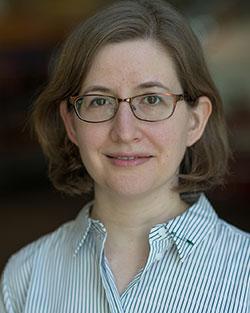
Amanda Stent PhD '01 – On the importance of a work environment
“Every work environment is unique, and only you can know what matters for you in a work environment. For me, technical innovation should be encouraged; it should be possible to collaborate with smart people on interesting problems; the organization should have a general habit of ethical thinking and practice; and publication should be an option. Also, for me personally, autonomy in my work day is really important.”
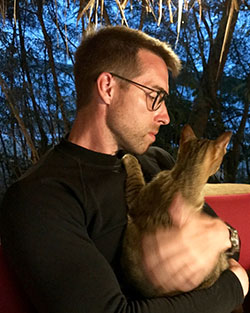
Kristaps Dzonsons BS '04 – Thriving in the open source world
“I think it's worth imploring computer science students to participate in the open source community. Not only is it beneficial in terms of knowledge, but it's also about being part of a community. Collaborating with OpenBSD folks in particular has given me a significant incentive to write clean, well-documented systems.”
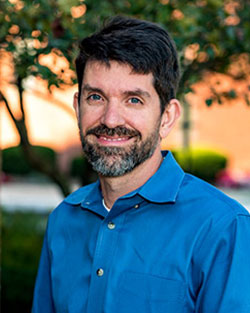
Matthew Boutell PhD ’05 – A teacher and a life-long learner
As a passionate educator at Rose-Hulman Institute of Technology, Matt Boutell is always looking for innovation to help students learn. His success with a flipped classroom, where students watch a video before coming to class, take a quick quiz, and then have an active question-answer discussion during class time has been very successful. He received the 2016 Dean’s Outstanding Teacher Award for these efforts.
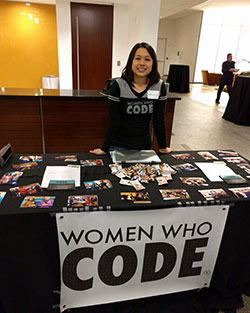
Pamela Vong BS '08 – The Grace Hopper Conference in 2007 was a turning point for her
Pamela Vong was the first woman undergraduate that the Department of Computer Science sent to the Grace Hopper Conference in 2007. Sharing my GHC experience at the first UR Women in Computing event was definitely a stepping stone on my path towards mentoring and advocating for women in computing.” Since then she has become a well-known member of the tech community in the DC metro area, participating in organizations like WomenWhoCode. She was named one of 2016’s Powerful Women Programmers by DC FemTech and participated in the White House TechJam in December 2015.

